Heike Monogatari has dealt with intergenerational themes since its premiere, but this episode cemented them as its cornerstone.
Now that we’re safely past the ‘continue reading’ tag, I’m going to spoil the show’s biggest and most permanent development thus far, so if you’re still reading and haven’t yet seen this episode, hit the back button. I’ll be honest – I knew it was coming, having read the Wikipedia article on the Tale of the Heike, but Shigemori’s death still bowled me over. His illness came on suddenly, but it wasn’t without narrative cause: his prayer to the gods near the episode’s end caused his life to be shortened, and it happened so definitively that even Koremori saw a portion of his father’s spirit leave his body. I liked that directorial decision quite a bit, because it brought gravity to the scenes they shared afterward, especially Koremori’s acceptance of his father’s tachi (a sword to be worn at a funeral). My initial interpretation of that moment was that Shigemori was providing his son with mourning attire for his own funeral, but a rewatch clarified its true meaning – he was asking him to continue to guard against Kiyomori’s lust for power, and to kill him in the event of a military overreach (thus the need for the tachi). Having threatened to bring an army against his father for his disloyalty in the previous episode, Shigemori understood that the threat would dissipate upon his death, so he called upon his son to maintain it.
Koremori is a sensitive man who’s more interested in the arts than in military matters (see his dance just after the OP in last week’s episode), and his father knows this. Imagine the internal conflict that Shigemori must have experienced while issuing such a plea to his firstborn son, who was already grappling with the familial responsibility he would soon inherit. You could hear the frustration in Koremori’s voice during Go-Shirakawa’s visit, as he tended to his father’s health while his siblings entertained the former Emperor with frivolous songs. Now that Shigemori has passed on, one imagines that he’ll also have to contend with Munemori, his rat-faced uncle who insulted his dancing, for the inheritance of the Taira patriarchy. A lot of these details can feel elusive given the swiftness of Heike Monogatari’s presentation, but the accompanying direction ties it all together beautifully. For example, Shigemori’s left eye sees ghosts, and as soon as he prays not to witness the death of his clan, we begin to see shots of his left side in isolation whenever he and Koremori are together – the specter of his death hangs over their every interaction.
Before Shigemori’s death, he dreamt of a misty Kasuga Shrine, where a monk informed him of Kiyomori’s death. This scene seemed to exist outside of time, much like Biwa’s ability to see the future, because the monk referred to the event as though it had already occurred. And just as Shigemori seemed to access some of Biwa’s predictive powers in his dream, she inherited his ghost vision upon his death at the end of the episode. I have to imagine that these sorts of unnaturalities will be sticking points for those who crave a straightforward viewing experience, but I absolutely loved both of these developments. Shigemori’s vision was especially good, employing visual trickery to conflate the shakujo (a ringed staff carried by some Buddhist monks) with a sword bearing Kiyomori’s severed head. And what a blow this dream must have been, since Shigemori’s fervent prayer was not to witness his clan’s demise! That prayer had even cost him a portion of his remaining life, yet the gods still forced the knowledge of his father’s death upon him as he slept. With each new episode, Heike Monogatari seems to tell us that fate is inescapable – though if anyone has the potential to break that curse, it’s Biwa, now equipped with two supernaturally perceptive eyes.
We’ve discussed the entanglement of Kiyomori, Shigemori and Koremori (grandfather, father and son), but that third generation received a new addition in this episode. Tokuko has borne Emperor Takakura’s child, a baby boy, and already Biwa has foreseen his death by drowning – notably, the same fate that awaits his mother. (Is anyone going to escape this series unscathed?) Last week we learned of Tokuko’s contentment with a childless life, stemming from her awareness of how difficult the baby’s life would be, and now her calculating father has swooped in to declare him the future Emperor, thinking only of his clan’s advancement. Kiyomori has become so single-minded, in fact, that he offers no help to his people after a series of devastating whirlwinds strike the capital, leading them to bitterly gossip about the Heike. It couldn’t be any clearer that Kiyomori’s obsession with power will be his downfall – the gods, the public, and even his own family are against him – but somehow the virtuous son Shigemori was first to die. It feels wrong for arrogance to outlive prudence, but even as his father recklessly expands his influence, Shigemori will serve as his eternal foil. This is the stuff that epics are made of: the righteous man dies and etches himself upon our memory, so we can clearly see the evil of those who still prosper.

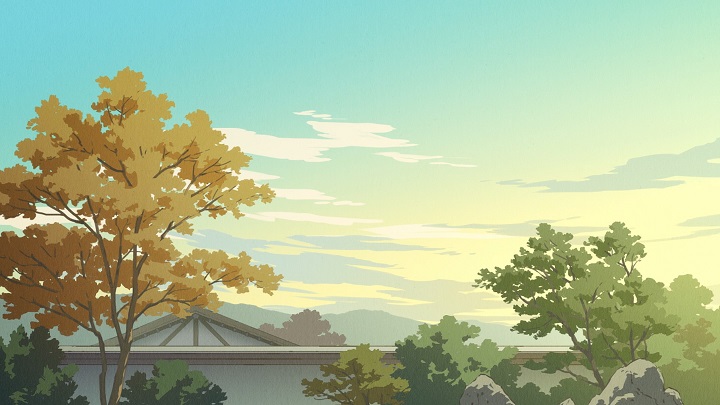
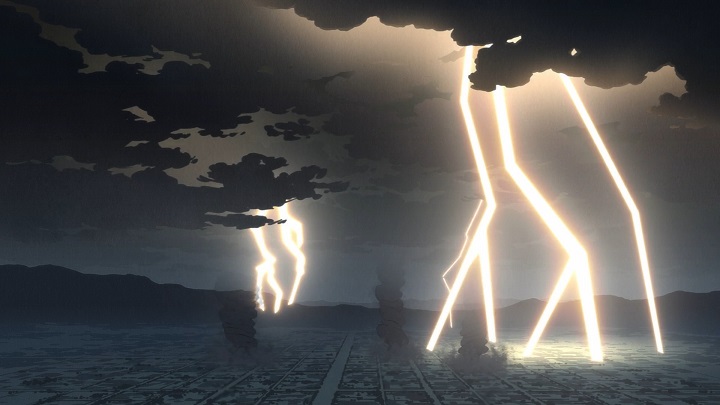
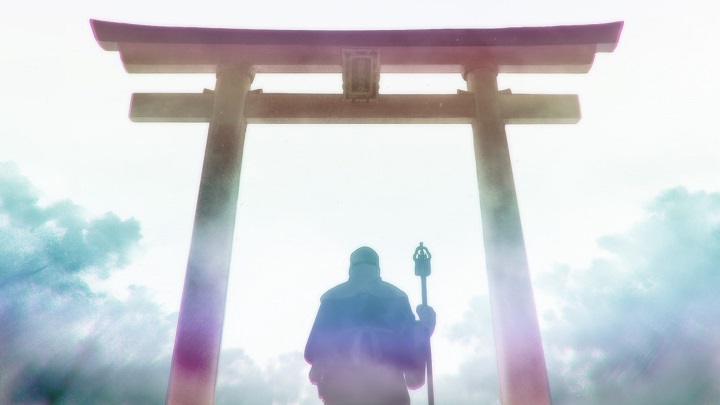
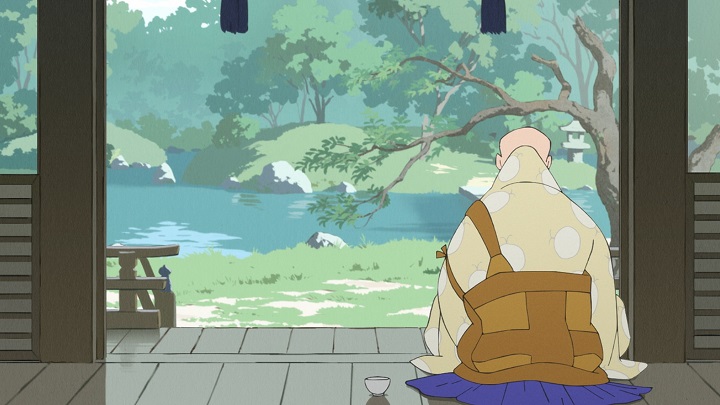
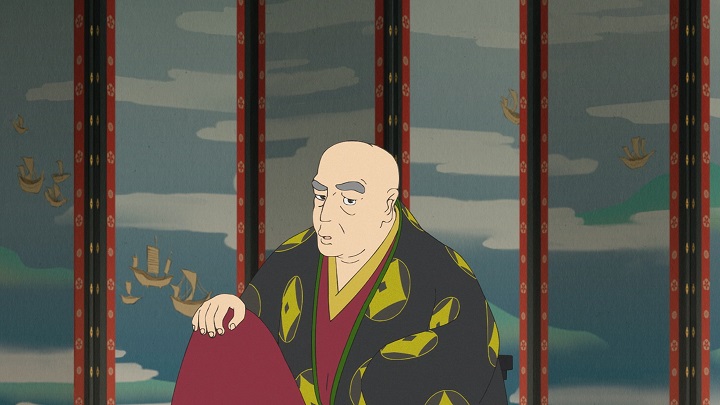
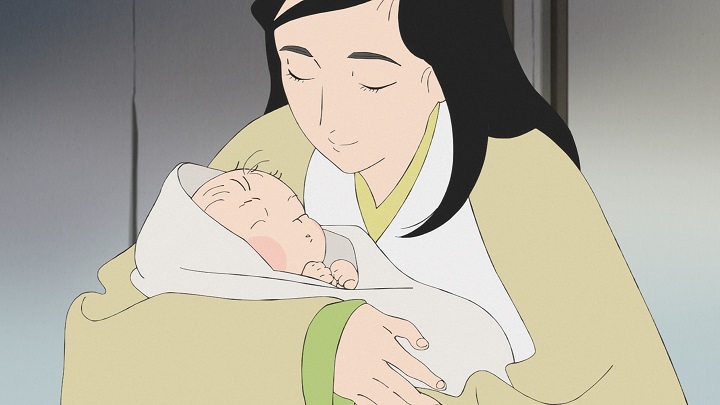
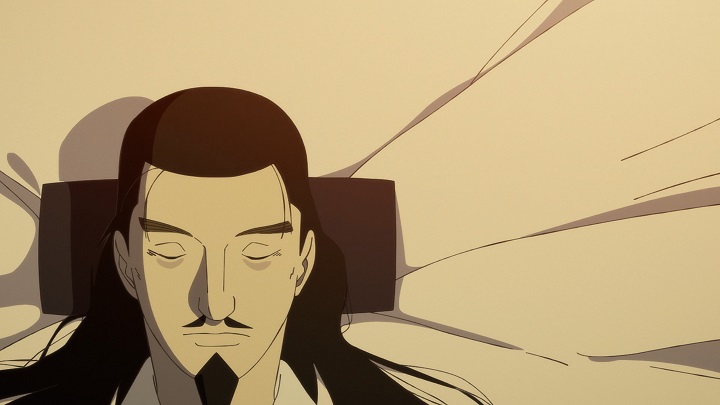
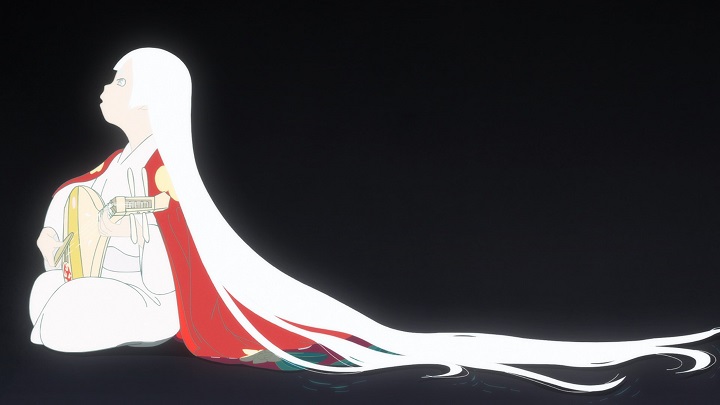
Wow, I didn’t even think too much on the significance of Shigemori giving Koremori a tachi, so seeing your perspective on it really opened my eyes. Love reading your entries on Heike, as they make everything so much more understandable to me, someone who hasn’t read the original folktale. Also, I loved the part where Biwa bitch-slapped Sukemori because of him trying to involve her in his romantic escapades. I laughed my ass off at that, and I love that Biwa doesn’t take shit from anyone, not even her own adopted siblings. Definitely agree that this episode was great.
Happy to be of service. Writing about the show helps me parse it out for myself, as well, so we’ve got a symbiotic thing going on.
That Biwa/Sukemori scene was my least favorite part of the episode – for his part in it, not hers. Felt a bit too “anime” for him to flirt with his unaging adopted sister like that, even in jest. I’m probably taking this series way too seriously, but then it is a very serious tale.
You’ve been adding analysis and clarity to these episodes very well so far Wooper, I think I was overfocused on the “feels” that took up much of this episodes runtime, that were effective and you could feel the dread building up to his fate.
*they
not That.
Thanks! I’ll try to keep it up for the next seven weeks – I’m using my posts on this series to atone for my lousy 3-gatsu coverage from years back.
I’m hearing some pretty sharp criticism from novel readers about how much this adaptation is not doing any of the text justice here. Apart from the obvious fact that such a faithful adaptation would be far too long and costly for the limitations of the current industry, was there any intention so far that it would even be all text to screen to begin with? Which then brings up the fact that this is Naoko Yamada’s interpretation, not a strict adaptation of the material.